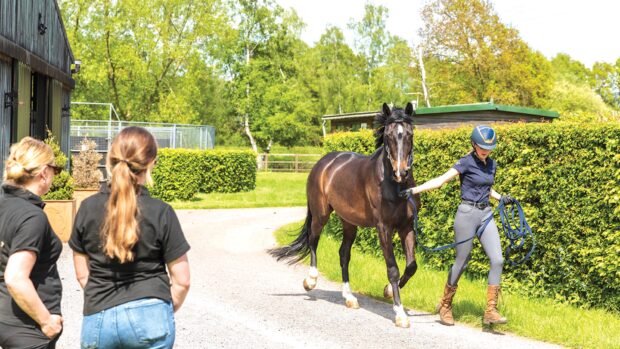View horses for sale
More articles on buying horses
Q: I went to try out a horse advertised as “ideal for bringing on for dressage“. What they hadn’t mentioned was that it was a newly retired show jumper who could no longer jump and that they were trying to sell it as a dressage horse.
Is this misrepresentation or does that only come into play after purchase?
WM, West Lothian
In legal terms, when a horse is being sold, views may be expressed by a seller in order to convey a positive impression of the horse, but which are merely intended to generate interest from purchasers.
These views may be expressed verbally or in writing, such as in an advertisement.
“Describing a horse as ‘highly desirable’, having ‘great potential’ or ‘ideal for bringing on for dressage‘ are examples of these views; but such ‘sales talk’ will normally have no legal effect,” explained Stuart Farr, of Laytons Solicitors.
“Other comments, however, may be more factual and specific and will go to the heart of a horse’s condition or capabilities. A purchaser may rely on such ‘representations’ when buying.
“In this context, a ‘misrepresentation’ is essentially an untrue statement of fact made by a seller that is relied on and induces a purchaser to buy the horse in question.”
Stuart gives the example of a seller who wrongly asserts that a horse performs to advanced level dressage.
The seller may be exposed to a claim from a buyer who bought the horse in reliance of that statement and subsequently discovers that the horse has no skills in dressage.
“Stating that a horse has potential to do something in the future, however, may be closer to an expression of opinion rather than fact, although much will depend on whether the person making the statement has specialist expertise or knowledge,” Stuart said.
“There are various types of misrepresentation – fraudulent, negligent or innocent.
“Depending on the type of misrepresentation alleged, an aggrieved purchaser will usually claim damages. In addition, the contract may be ‘set aside’, or legally annulled, in order to return the parties to their original positions.”
Information
Laytons Solicitors, tel: 0161 834 2100 www.laytons.com
This article was first published in Horse & Hound (4 June, ’09)
Find horses for sale near you
Looking for more articles on buying horses?
Buying a new horse? Compare insurance prices at horseandhound.co.uk/insurance



